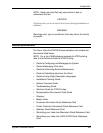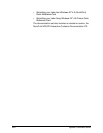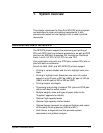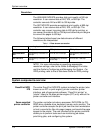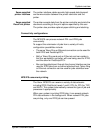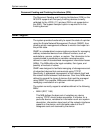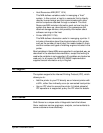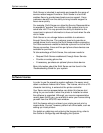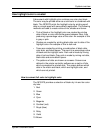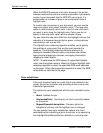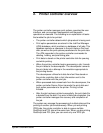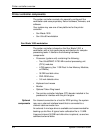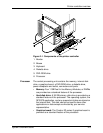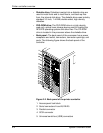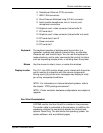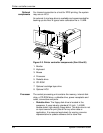
System overview
System Overview Guide 1-7
How highlight color is created
A document with highlight color contains one color plus black.
The color may be printed either as a solid color or combined with
black. The NPS/IPS prints the highlight color by printing small
dots in a single pass with near-perfect registration. The following
methods are used to create various tints, shades and tones:
• Tints of black or the highlight color are created by printing
dots of black or color with white space between them, thus
producing a percentage value of the color. An example of this
is gray or pink.
• Shades are created by printing black dots next to dots of the
highlight color. An example of this is dark red.
• Tones are created by printing a combination of black dots,
color dots, and blank space. The result is a percentage value
of black and the highlight color. Dark red is made by mixing
dots of red and black. Gray-pink is made by mixing red dots,
black dots and some blank space.
• The patterns of dots are known as screens. Screens are
defined in the printer controller software as a matrix of bits,
which correspond to printed dots. The screen defines which
dots in the matrix are black, which are highlight color, and
which are not printed.
How to convert full color to highlight color
The NPS/IPS provides a selection of black dry ink and ten color
dry inks:
1. Red
2. Green
3. Blue
4. Cyan
5. Magenta
6. Cardinal (red)
7. Royal (blue)
8. Ruby
9. Violet
10.Brown.



